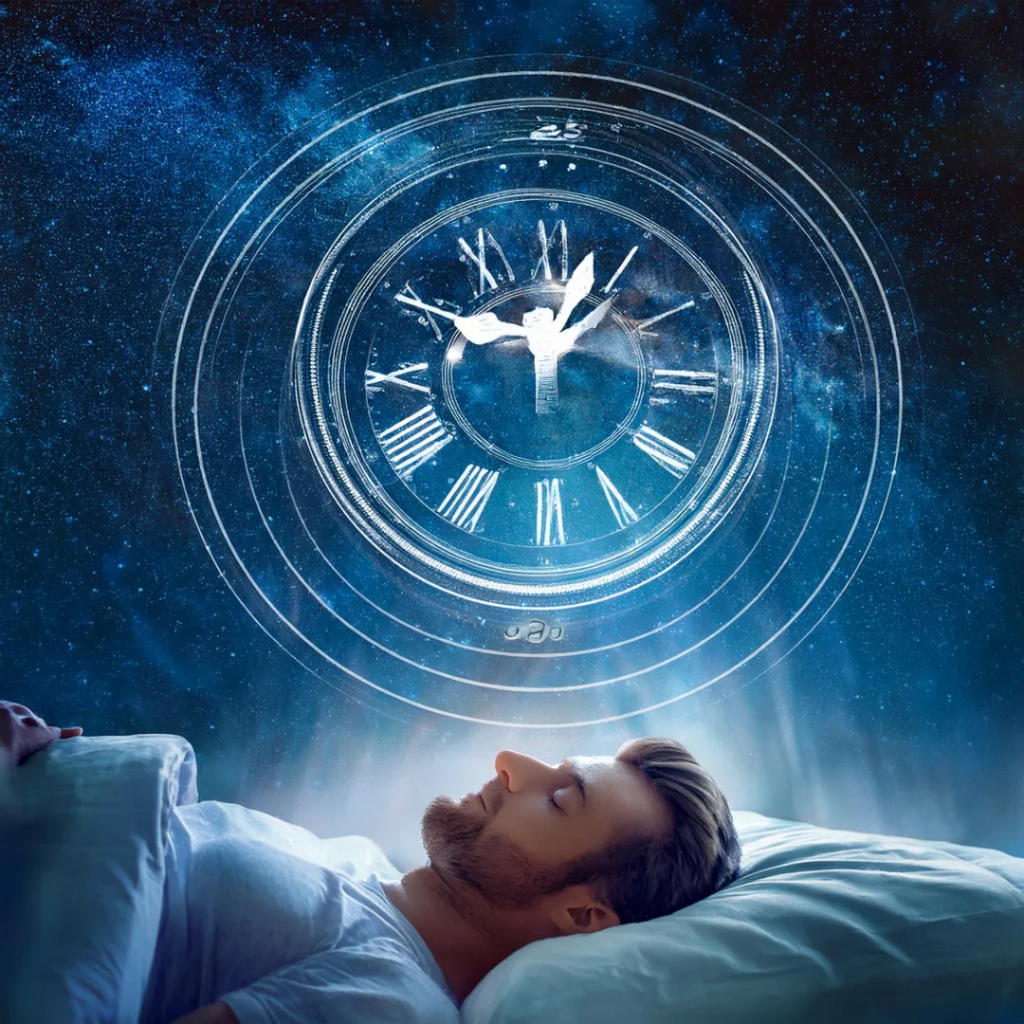- 01203134207
- +91-8750054466
- +91-8123018558
- +91-8095555997
Restoring Balance: Understanding the Connection Between Sleep and Circadian Rhythm
In our fast-paced, 24/7 world, understanding the intricate relationship between sleep and circadian rhythms is more important than ever. Circadian rhythms, often referred to as our “biological clocks,” play a crucial role in regulating various bodily functions, including sleep-wake cycles. By restoring balance to these rhythms, we can enhance our sleep quality and overall well-being.

What Are Circadian Rhythms?
Circadian rhythms are natural, internal processes that cycle roughly every 24 hours. These rhythms respond to environmental cues, particularly light and darkness, and influence sleep patterns, hormone release, body temperature, and other vital functions. The master clock in our body, located in the hypothalamus, receives information about light through our eyes and helps synchronize our biological processes with the external environment.
The Role of Circadian Rhythms in Sleep
- Sleep-Wake Cycle Regulation:
- Circadian rhythms dictate when we feel alert and when we feel sleepy. Exposure to natural light during the day promotes wakefulness, while darkness signals the body to prepare for sleep. Disruptions to this cycle, such as irregular sleep schedules or excessive exposure to blue light from screens, can lead to sleep disorders.
- Melatonin Production:
- Melatonin, often called the “sleep hormone,” plays a pivotal role in signaling our bodies that it’s time to sleep. Circadian rhythms regulate melatonin production, which typically increases in the evening as it gets dark and decreases in the morning. An imbalance in this rhythm can lead to difficulty falling asleep or staying asleep.
- Impact on Sleep Stages:
- Circadian rhythms influence the duration and quality of different sleep stages, including REM (Rapid Eye Movement) and non-REM sleep. A well-regulated circadian rhythm promotes a healthy distribution of these stages, which are essential for cognitive function, memory consolidation, and emotional regulation.
The Consequences of Disrupted Circadian Rhythms
Disruptions to our circadian rhythms can have far-reaching effects on sleep and overall health:
- Sleep Disorders:
- Conditions like insomnia, sleep apnea, and delayed sleep phase disorder are often linked to circadian rhythm disruptions. Individuals with irregular sleep patterns may struggle to maintain consistent sleep quality.
- Mental Health Issues:
- Research has shown a strong correlation between disrupted circadian rhythms and mental health disorders, including anxiety and depression. Poor sleep quality can exacerbate these conditions, creating a cycle of distress.
- Physical Health Implications:
- Long-term disruptions to circadian rhythms have been associated with various health issues, such as obesity, diabetes, and cardiovascular disease. The relationship between sleep, circadian rhythms, and metabolic health is complex but crucial for overall wellness.
Restoring Balance to Circadian Rhythms
To optimize your sleep and restore balance to your circadian rhythms, consider the following strategies:
- Maintain a Consistent Sleep Schedule:
- Go to bed and wake up at the same time each day, even on weekends. This consistency helps regulate your body’s internal clock and improves sleep quality.
- Limit Light Exposure at Night:
- Reduce exposure to screens and bright lights in the evening. Consider using blue light filters on devices and dimming lights to signal to your body that it’s time to wind down.
- Get Plenty of Natural Light During the Day:
- Spend time outdoors during the day to expose yourself to natural light. This exposure helps reinforce your circadian rhythms and improves mood and alertness.
- Create a Relaxing Bedtime Routine:
- Establish a calming pre-sleep routine that signals to your body it’s time for rest. Activities like reading, gentle stretching, or meditation can help prepare your mind and body for sleep.
- Choose the Right Sleep Environment:
- Ensure your bedroom is conducive to sleep. A comfortable mattress, such as those offered by Restolex, can provide the support and comfort needed for restorative sleep. Keep the room dark, quiet, and cool to promote better sleep quality.
Conclusion
Understanding the connection between sleep and circadian rhythms is vital for achieving restorative sleep and maintaining overall health. By prioritizing consistent sleep schedules, managing light exposure, and creating a relaxing bedtime routine, individuals can restore balance to their circadian rhythms. At Restolex, we believe that a good night’s sleep begins with the right mattress and a commitment to healthy sleep practices. By investing in your sleep, you can enhance your well-being and lead a more balanced life.
Call us today at 01203134207 to find the perfect mattress for your restful nights!
Newsletter Sign Up
Join our community to receive exclusive updates, sleep tips, and special offers directly in your inbox. Stay informed and be the first to know about our latest products and promotions.

Contact Us
- 9/1, Ashokapuram, Industrial Suburb, Yeshwanthpur, Bengaluru-560022, India
-
care@restolex.com
Orders@restolex.com
Support@restolex.com -
+91-8750054466
+91-8123018558
+91-8095555997
